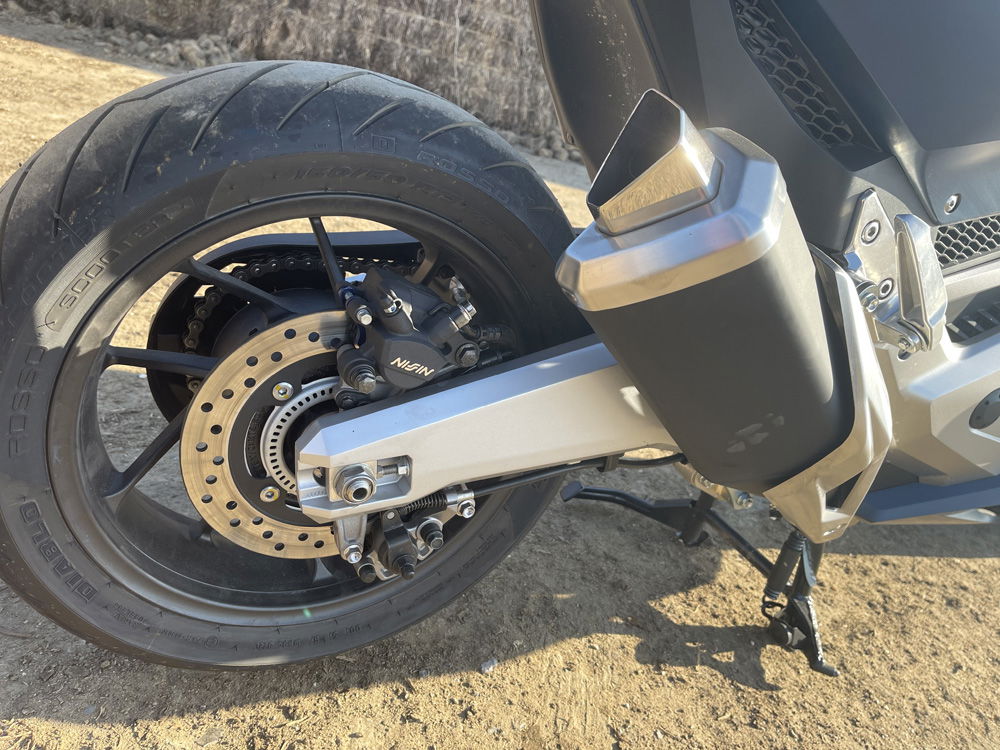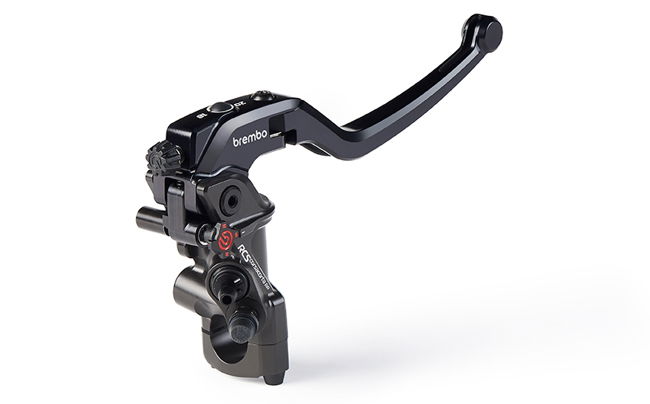Brembo reduces brake pollution with new Greenance brake pads
Brembo has launched a new environmentally-friendly brake pad range called 'Greenance' which reduces both pollution and wear.

Brembo is set to introduce new environmentally-concerned brake pads which can also offer improved durability as well as reducing pollution.
Environmental concerns are of course at the forefront of the minds of most major manufacturers by now, whether because they have a genuine concern for the environment or simply a concern for anticipating regulation changes and remaining within existing ones.

That concern is true not only for the motorcycle manufacturers themselves, who currently consider options between battery electrics, fuel cell electrics, and ‘green’ combustion with either hydrogen or synthetic fuels.
It is a concern also for the product manufacturers, those who provide specific equipment, such as brakes.
When it comes to brakes, Brembo is a name that immediately comes to mind, and their specific corner of the industry is one of the more emergent in the environmental and anti-pollution conversations.
Brake particulates have recently become, along with tyre particulates, one of the more major pollutive concerns. Research from 2017 conducted by the Georgia Institute for Technology in the US described the air above busy highways as a “toxic aerosol” due to the combination of metallic non-exhaust emissions - for example, those from brakes - with “acidic sulphate-rich particles already in the air.”

Despite the apparent problem non-exhaust emissions cause, especially in areas which combine heavy traffic flow with high population density - for example, cities - there is less attention directed towards these issues compared to the established concerns relating specifically to the greenhouse gases emitted from the exhausts of internal combustion vehicles.
However, this is an issue of particular concern because it is one which also concerns electric vehicles. These of course do not produce emissions from any exhaust, but they often weigh more than traditional combustion equivalents. That means there is more weight for the brakes to slow down and stop, which means the brakes are used harder, and therefore wear more, and therefore create more emissions. Theoretically, at least.
In cars, it is possible to reduce the emissions of brakes by simply not having any. Formula E will not have rear brakes in the traditional sense on its ‘Gen 3’ car that debuts in the championship’s next season, as all of the braking at the rear will be done regeneratively. Obviously, for now, that is limited to racing, but it also takes the interest of the production side of the manufacturers, as discussed in the seventh edition of Car Science.
For motorcycles, regenerative braking is more complicated because so little braking is done at the rear wheel, and the vast majority of braking force is put through the front. Since regenerative braking only affects the rear wheel, its impact on motorcycles is limited.

Therefore, reducing the emissions produced by the mechanical brakes on motorcycles is important, and that is the direction Brembo is heading in.
The Italian manufacturer’s new Greenance (a combination of green and performance, Brembo says) brake pads are designed to reduce brake wear and emissions and “will gradually replace the entire range of Brembo Aftermarket pads,” Brembo says.
The Greenance pads will be available in compounds from sintered to carbon-ceramic, and according to Brembo will offer a 10% increase in friction coefficient over existing pads, as well as a 15% reduction in wear.

From an environmental perspective, the Greenance pads do not use copper or nickel in their construction, and the carbon-ceramic versions feature no asbestos or antimony. The production process will also out the use of methane, which Brembo says will result in “savings of about 176 tons per year of CO2 equivalent [...] once fully operational.”
The version of Greenance that Brembo uses for cars offers reductions of over 80% in both PM2.5 and PM10 emissions. Equivalent figures have not been given for the motorcycle versions.

